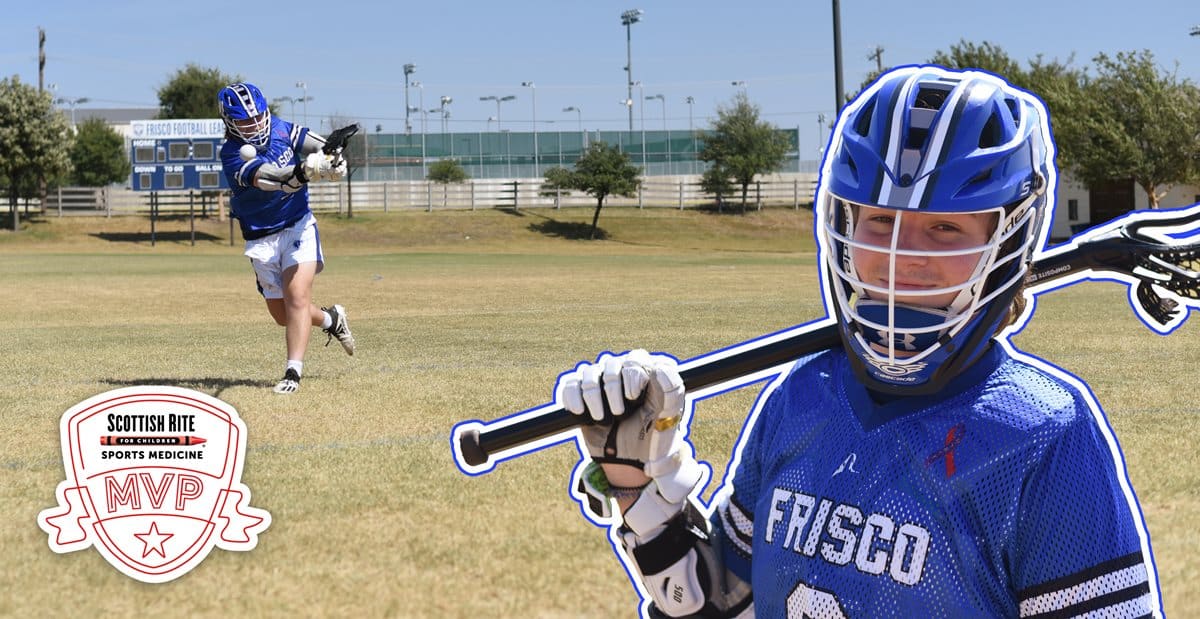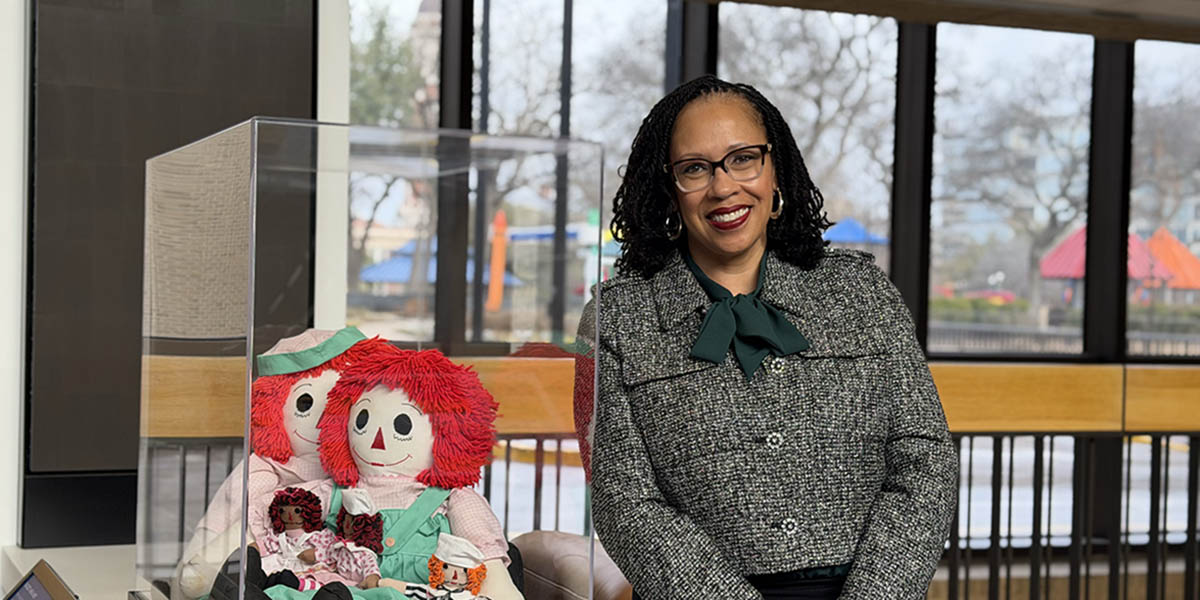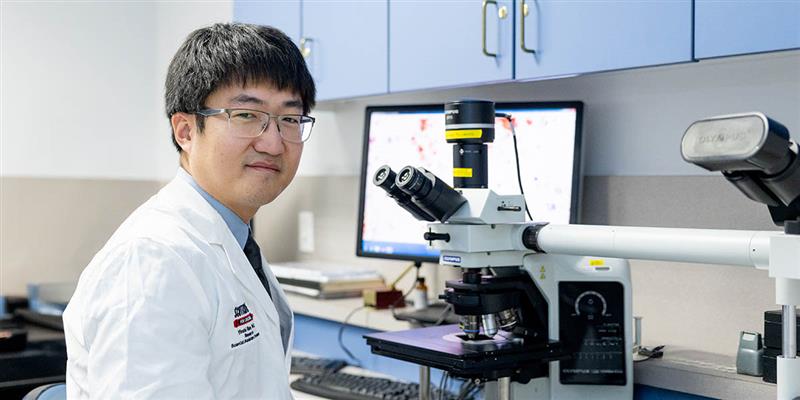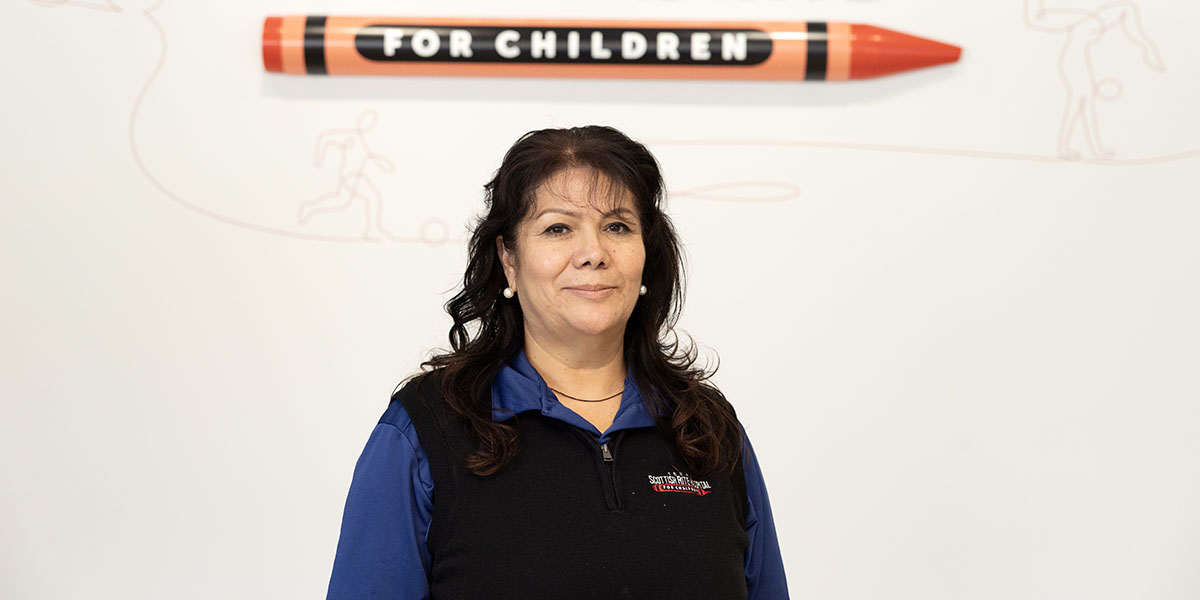Seventeen-year-old Eli has been a leader on the lacrosse field since he started playing at the age of 8. He currently plays lacrosse with the Frisco Lacrosse Association and is an outside linebacker on Frisco ISD’s Lone Star High School football team. This multi-sport athlete from Frisco knows a lot about overcoming adversity, and he’ll be quick to tell you if you ask about one of his greatest victories.
Eli learned that he had osteochondritis dissecans (OCD) in his knee soon after an injury during a tournament in Philadelphia when he was 14-years-old. With hopes that this cartilage condition would improve with time, he continued playing. Several months later, an unfortunate move in a tie-breaking “braveheart” play at a Denver tournament forced him to try a different approach.
Looking for someone with experience treating young athletes with OCD, his family found pediatric orthopedic surgeon Philip L. Wilson, M.D. “Cartilage conditions like this are unique to young athletes, but we have a lot of clinical experience and research interests focused on understanding more about this condition,” Wilson says.
With OCD, early intervention and treatment recommendations, including rest or wearing an unloader brace, may allow the tissue to heal on its own. Unlike braces used for kneecap instability or after an ACL reconstruction, an unloader brace is designed to change the weight distribution in the knee joint.
When Wilson met Eli, it was clear the bone and cartilage on the surface of the joint would need surgery. Wilson describes this condition using an analogy of a pothole. Though it’s unclear why, the bone on the surface of the thigh bone collapses, and the smooth cartilage surface can tear. There are several different surgical techniques that may be used depending on the condition of the surface.
“Dr. Wilson made me feel safe,” says Eli. “He cracked a lot of jokes, which helped me feel less nervous.”
Before returning to the lacrosse field, Eli needed to recover his strength and mobility in his leg. Getting his injured leg to the point where he felt safe on the field seemed like a long process, but his hard work in physical therapy paid off because he now has total confidence in his knee. “My knee feels 110% – better than my other knee, actually,” says Eli. “We are very thankful, and we owe a lot to Scottish Rite,” says his mother, Heather.
Eli believes his experience has given him a valuable perspective that helps him handle challenges and find the positive in any situation. “It always gets better,” he says. “I’ve been through a lot, so I know that I can get through other bad things that come up.”
Eli has advice for other young athletes who are injured and out of the game. He knows how it can not only affect them physically but mentally as well. “I was depressed because I couldn’t play for six months, but I overcame it,” he says. “You can get through anything if you have a good mindset.” Heather encouraged Eli to be active and connected with his friends and coaches throughout his recovery. His coaches recommended that he continue to study the sport to keep his mind ready for the game as he got his body ready. “It’s hard as a parent to watch your kid struggle through it,” says Heather. “You don’t realize how much sports mean to your child until it’s taken away, so staying connected and finding ways to help them stay positive is important.”
Eli has big dreams, and one of them is playing lacrosse in college. He knows that he can overcome adversity and that hard work and perseverance usually lead to something great. “I want to set the bar way too high so that if I meet it in the middle, I’ll be okay, but maybe I can go flying over the top,” he says.














